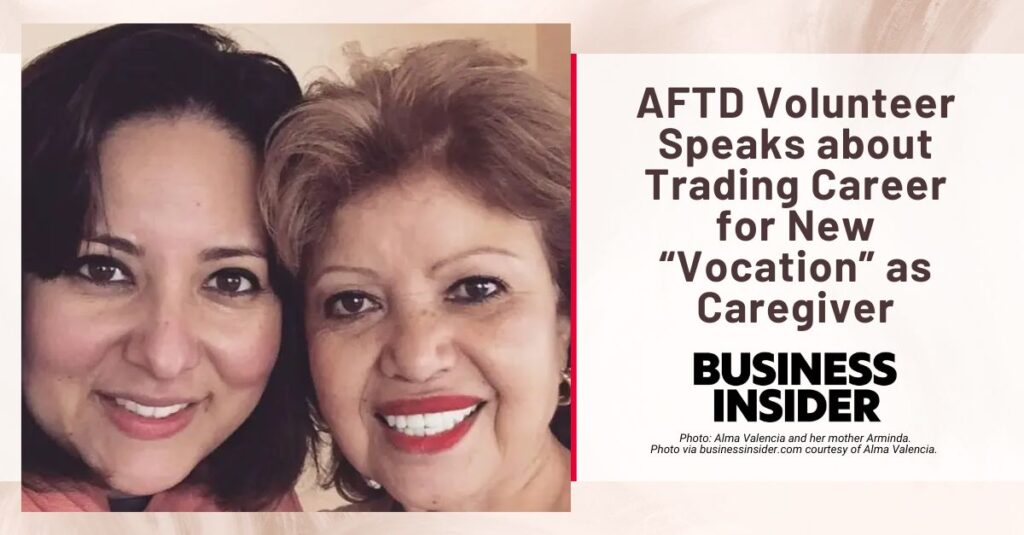AFTD Volunteer Speaks about Trading Career for New “Vocation” as Caregiver

Alma Valencia, an AFTD volunteer in California, shared the challenges, stresses, and “moments of joy” she experiences as her mother’s caregiver in an as-told-to essay published recently in Business Insider.
Valencia says she relished her career as a technical designer in the fashion industry, but she stepped away in 2020 to care for her mother, who had been diagnosed with FTD.
She was exhausted from raising her children and running her mother to appointments while working a demanding job. “I was stretched thin as a member of the sandwich generation,” she says.
After being laid off at the beginning of the pandemic, Valencia decided to work for the state as her mother’s full-time caregiver.
While it was gratifying knowing her mother had the best possible care, Valencia’s income dropped to $15 per hour – down from a salary of around $90,000 – and she smarted over the loss of her career. She has received pay increases over the past four years, but she still makes less than California’s current state minimum wage. Yet, she says, “eventually, I accepted my caregiving role as my vocation.”
She and her husband moved her mother into their small, two-bedroom apartment, leaving the couple to sleep on a pull-out couch in the living room. “I’ve set up strategies and routines and organized everyone. Little by little, I’ve started getting a good rhythm,” she says.
Valencia has leaned into her role as her mother’s caregiver, even going so far as to post to an Instagram account “to share my story and highlight the moments of joy.”
Valencia has also been an active AFTD volunteer since her mother’s diagnosis. She hosted a Meet & Greet event in Los Angeles in March, as well as a virtual, Spanish-language event in May.
Being an FTD caregiver is “a challenge, but I am providing the life that my mom wanted,” she says. “Up until the day she dies, she will always have me.”
FTD is a complex disease with emotional and practical challenges that can be as isolating as they are overwhelming—finding a support group can provide you with a safe space to share your thoughts with others who understand and trade resources for the journey ahead. The AFTD HelpLine can answer any questions you have about FTD and offer support; contact the HelpLine at 1-866-507-7222 or info@theaftd.org.
By Category
Our Newsletters
Stay Informed
Sign up now and stay on top of the latest with our newsletter, event alerts, and more…
